Speech-language are different, and it is important to understand this when a communication disorder is suspected. Since there is a difference between speech and language difficulties, the first thing our speech-language pathologists determine with a child who experiences trouble communicating, is if the problem is speech related, language related, or both.
Speech and Language are Not the Same
Speech-language differences may not be obvious, as they are often thought of as synonymous. They are not. Speech and language are related because they work together to enable full communication; however, they are different. This is often confusing to individuals that are new to speech-language therapy.

Remember: Speech and Language are Different
Speech refers to the production of sounds; that is, the ability to produce sounds with clarity. Speech requires intact articulators (mouth, tongue, lips, etc.) that are effective for sound production.
Language refers to the use and understanding of words. That includes vocabulary, grammar, and the formulation of sentences. It also refers to the use of language in social contexts (pragmatic language skills).
For example, a child who has not mastered speech acquisition, but does have language skills may
point to a picture of an elephant and say “ewabut.” The child knows the picture, and can recall
the name of it; however, this child cannot pronounce the speech sounds accurately in order to
be intelligible to a listener. Conversely, a child who has acquired speech (articulation) without
difficulty, but has a language disorder may point to a picture of an elephant and say “table.”
Once it’s diagnosed whether the disorder is speech and/or language related, effective care can be decided. Each unique problem has its own unique treatment, which is customized for the child and his or her needs. View some of the primary speech and language disorders we treat in our Services section.
